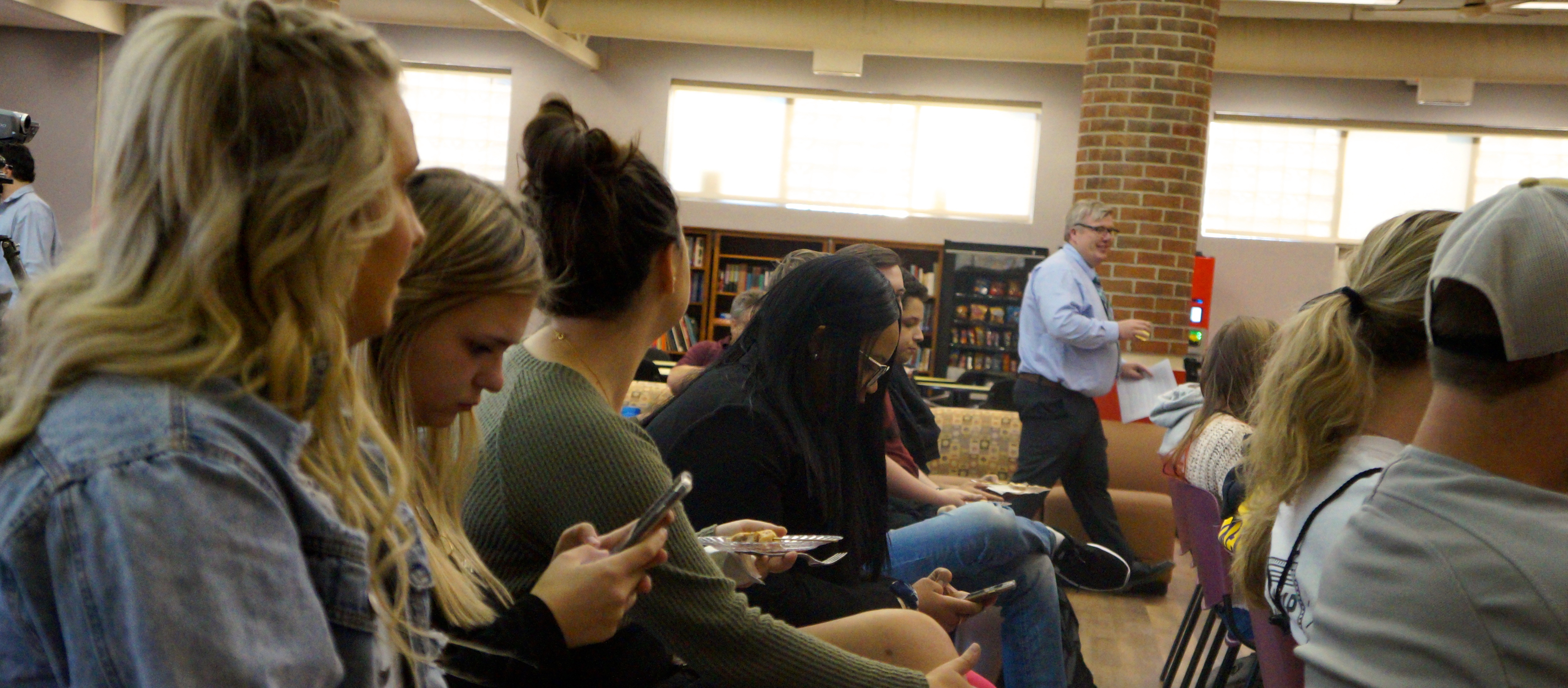Four intellects from diverse, intertwined fields, were given an hour to make some sense out of what many call “BREXIT” in the Honors Commons on Tuesday evening, Oct. 22. To oversimplify their presentation, in 2016, a majority of citizens of the United Kingdom voted to withdraw from the European Union, winning the referendum by less than 2% of those who voted.
Millions of people who could vote did not. The departure was marketed to the public as quick, eas financially favorable for the UK and a move back to the good old days when Great Britain was Great and free to do as it pleased. Three years later, none of that has proven to be the case.
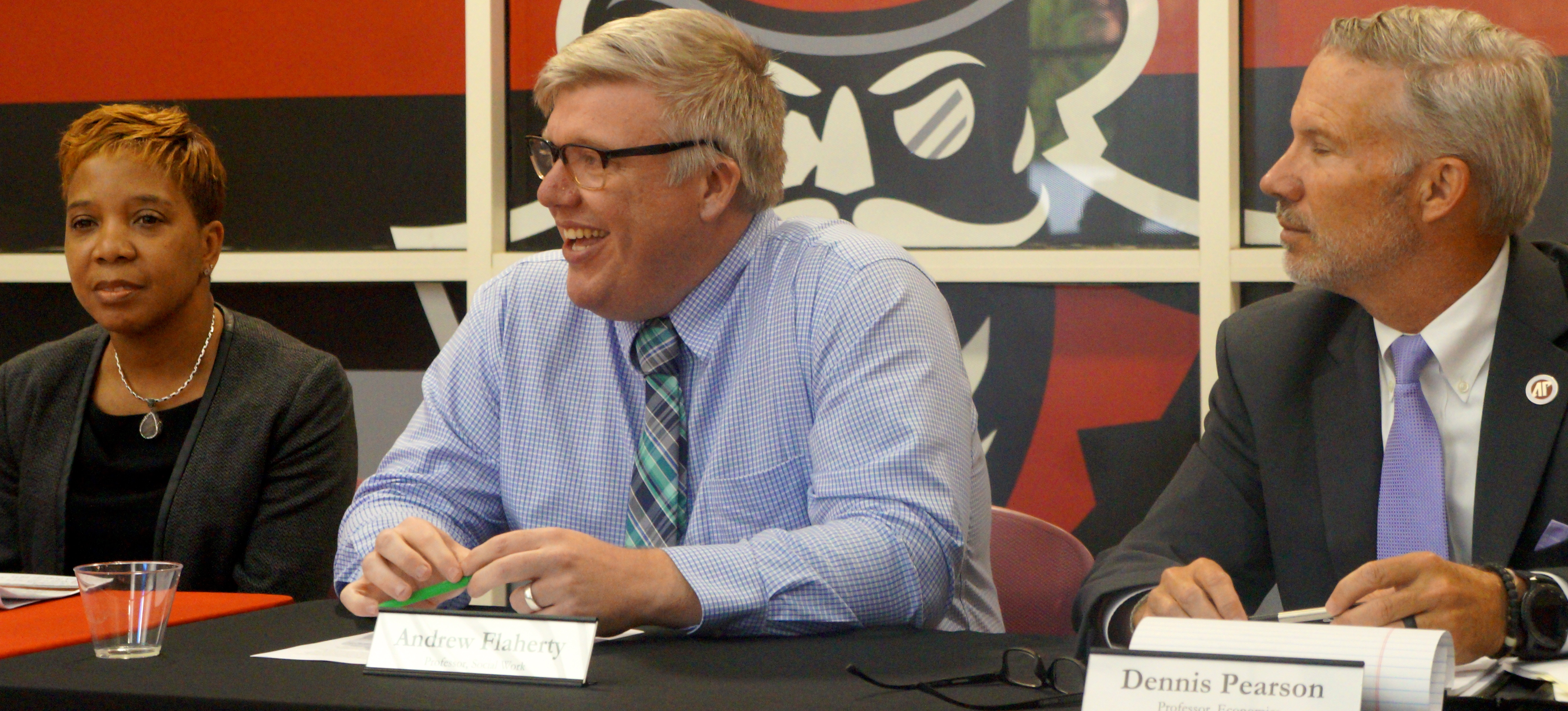
In trying to get arms around the complexities of this situation, history was a prologue to a potentially dark future.
After Europe was nearly torn apart by two world wars, a shared economic future was seen as insurance against war without end. Economist, Dennis Pearson, paraphrased Claude Frederick Bastiat 19th century apocryphal attribution, “When goods don’t cross borders, Soldiers will.”
At the end of WWII, treaties and trade agreements were drawn up to keep the world from killing one another.
Sociology Professor Andy Flaherty, provided a deeper historical context for the non-UK citizens in the audience.
“The power of the British crown is seated in the conquests of William the Conqueror, a thousand years ago,” Flaherty said.
William was from Normandy, now a part of France. This is a very old fight between two historic superpowers.
Historian, Dzavid Dzanic, detailed the lead up to this Referendum vote in 2016. At his conclusion, he drew attention to a real concern that if a hard border separates the Republic of Ireland from Northern Ireland again, there are “people much closer to the situation than I who think it could lead to a violent civil war or the breaking up of the United Kingdom.”
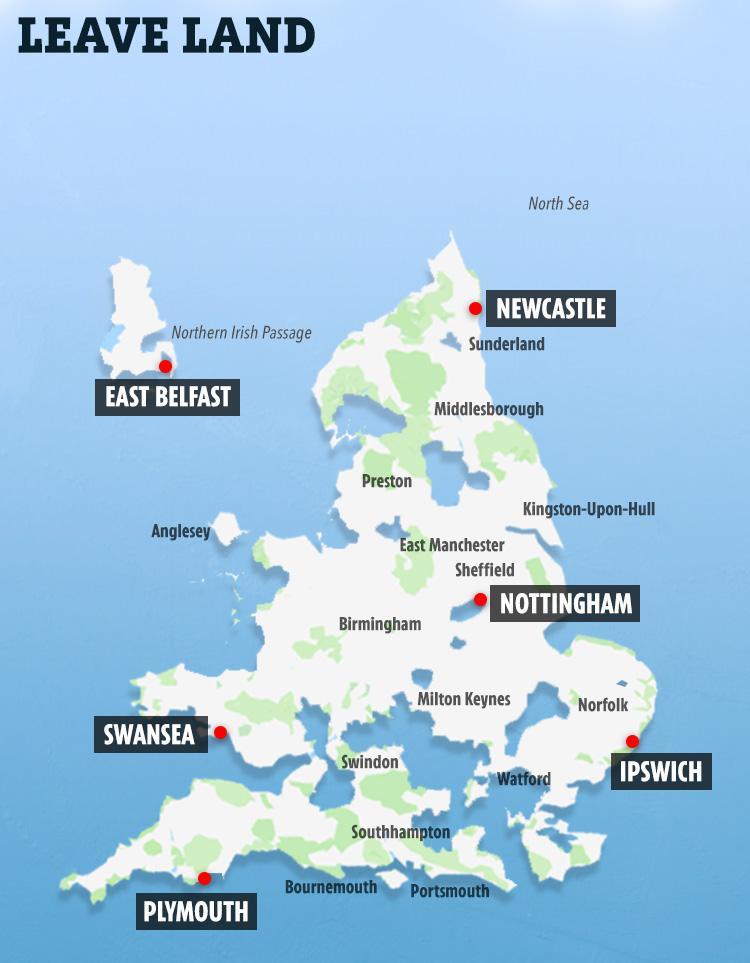
Great Britain is a collection of island countries. The majority of people living in Northern Ireland and Scotland voted to stay. It is conceivable that Scotland and Northern Ireland could both petition to remain in the European Union, despite what the UK Parliament decides. This potential dismissal of past agreements could be cataclysmic to the stability of democracies across the globe.
Marsha Lyle-Gonga explained the differences between the UK Parliament and the US Congress. She described how Boris Johnson came to be Prime Minister, by simply being the leader of the dominant party.
“He was not elected by the whole of the country,” Lyle-Gonga said.
Prime Minister Johnson currently lacks the votes to ratify the deal he has negotiated with the EU and has been forced to request an extension of the deadline to leave, which was supposed to be Thursday of this week.
Flaherty, who retains citizenship in the UK, spoke intimately about the hearts and minds of the citizenry, split nearly in half on this issue. He raised some difficult questions.
“That is what majority rule says, is it not?” Flaherty said. “[But] a sizable amount of people sat out and did not vote … It turns out what they promised when they campaigned to leave is not even possible to deliver on. So, did they actually vote on the actual deal or just what they hoped might happen?”
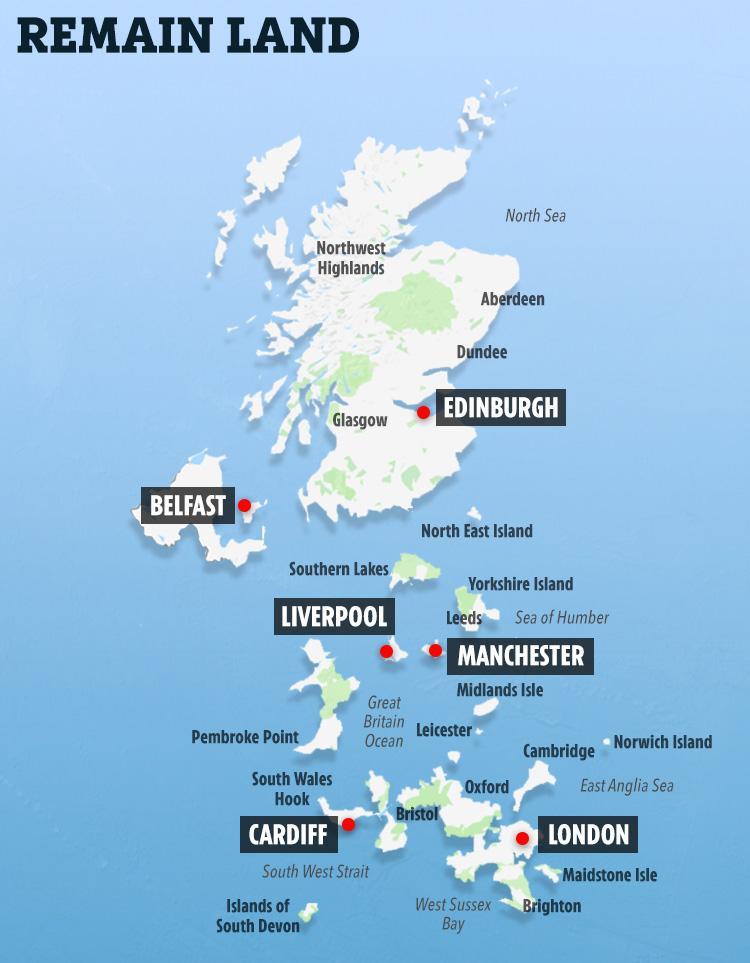
Pearson, the economist on the panel, explained the dollars and cents of the matter.
“Leaving the European Union is projected to cost the United Kingdom as much as 50 billion dollars,” Pearson said.
This is money that no one voting for the referendum expected or wanted to pay. The UK gross domestic product is slightly smaller than the state of California.
“This is a large burden,” Pearson said.
Voters on the “stay” side of the issue would like to factor these important facts into the ratification decisions going forward.
Ruby Helyer, a British citizen, and a visiting graduate student at APSU, described how she secured a home in Germany before the Brexit was scheduled to happen. She wants to maintain an EU passport. Having made this provision for herself “gave [her] a little sense of happiness and safety and everything will actually be okay.”
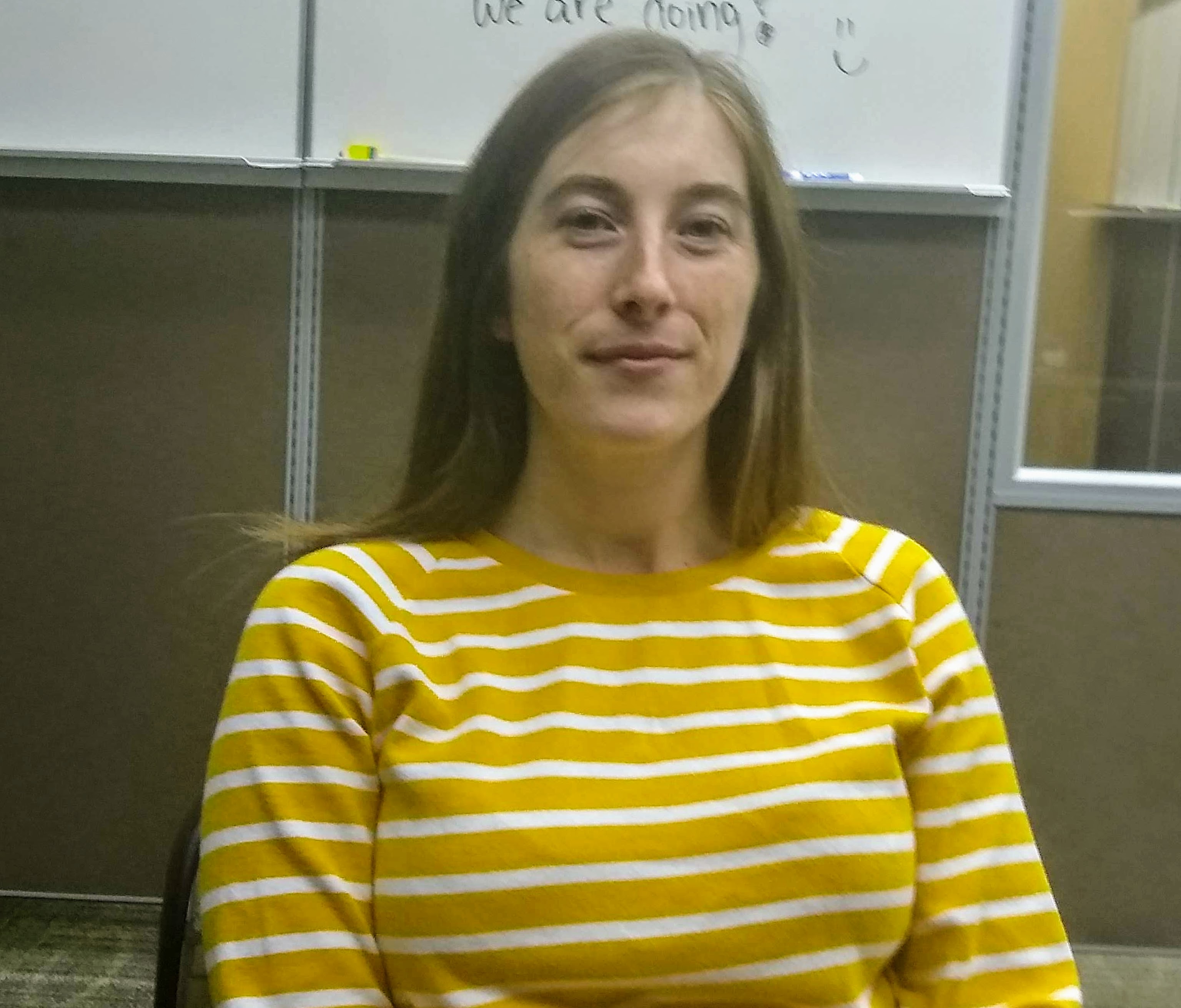
“After Brexit happened […] and a lot of voters had been lied to or misinformed, many people have called for a revote,” Helyer said. “The people who are for Brexit have said, ‘This is a democracy and that is what we voted for. And if you go back on our vote, it throws democracy in the air and what would our country have left?'”
“I feel conflicted. I obviously don’t want to leave the EU. But I do agree with the idea of democracy and we did vote for it and we should follow it through,” Helyer said.
Here are how things stand as of this writing: Parliament voted to request an extension of the ratification deadline of this Thursday. Their view is that the complex terms of Johnson’s newest deal for leaving require more than three days for review.
The Prime Minister, Boris Johnson, said he will ask for the extension to the first of the year — only if the Parliament will agree to hold nationwide elections in December.
Johnson hopes to replace some no votes with yes votes. His opposition seem to be afraid that they may not return to parliament if a vote is held and so won’t agree to the election Johnson is seeking. The EU has said it will not vote on the extension until the UK gets on the same page.
All members of the EU have to agree to an extension and the wildest conjecture has Bulgaria saying no as a favor to the Prime Minister, forcing the UK to leave the EU without any kind of deal — what they call a hard Brexit. Bulgaria as a spoiler has led to speculating on potential Russian interference, a nation which is seen to potentially be a big winner if the EU and NATO were to fall apart.
Uncertainty and fatigue are wreaking a dire cost to global markets and participation in democracy. What is happening in the UK threatens the stability of the economy and the rule of law. This is a threat on the horizon in these perilous times. Keep an eye on Brexit. According to some of the minds among our faculty, this matters.

